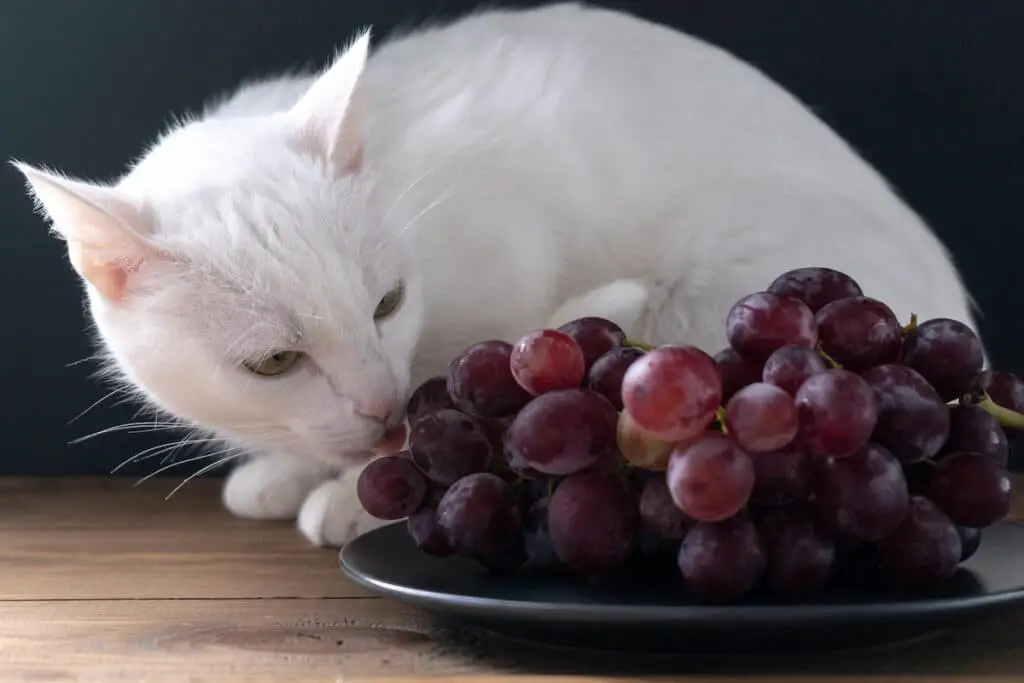There is a clear answer to “can cats eat grapes?”; grapes are very toxic to cats so you should never feed them grapes. Grapes can cause kidney failure in both cats and dogs, and be fatal even in small amounts.
Why Grapes Are Bad For Cats
Scientists don’t know exactly why grapes are bad for cats, but the thought is that it has something to do with the tannins in the grapes. The theory is that cats’ kidneys can’t process the tannins. As a result, the buildup of tannins acts like a toxin that inhibits regular kidney function. Most of the research on this has been done with dogs, so we can only infer the same results apply to cats.
Whatever the case may be, even small amounts of grapes or raisins can be fatal to cats very quickly.
Signs of Grape Poisoning in Cats
Symptoms of grape poisoning will appear between 12 and 24 hours after consumption. The most common sign of grape poisoning is vomiting, however there are some other symptoms including:
- Lethargy
- Weakness
- Diarrhea
- Lack of appetite
- Dehydration
- Rapid breathing
- Abdominal pain
If left untreated, more severe signs of grape poisoning will appear between 36 to 48 hours after consumption. If you detect any of these symptoms you should take your cat to the vet or call pet poison control immediately:
- Lack of appetite
- Nausea
- Excessive Vomiting
- Breath smelling of ammonia
- Excessive thirst
- Excessive urination initially
- Lack of urination ultimately
- Coma
Most of these are signs of kidney failure and should be taken very seriously. Even if your cat gets medical attention and survives, any sustained kidney damage can remain for the rest of the cat’s life.
Forms of Grapes that are Toxic to Cats
Any product or byproduct of grapes will be toxic to cats. Dishes and products containing raisons include:
- Raisins
- Grape ice cream
- Grape leaves
- Grape seed oil
- Grape syrup
- Grape stems or skin
Do Cat’s Like Grapes?
Most cats won’t like grapes because cats don’t like most plants. Cat’s are also generally disinterested in sugar because they don’t have receptors for sweet things. However, every cat is different and some cats will probably eat grapes or raisins. The other thing to consider is a lot of grape products have additional ingredients the cat might like. For example, you cat might be tempted to nibble at a grape pie because of the fat content of the pie.
In any case you should hide grapes and grape products from your cat. Keep items in the cupboard and out of reach.














